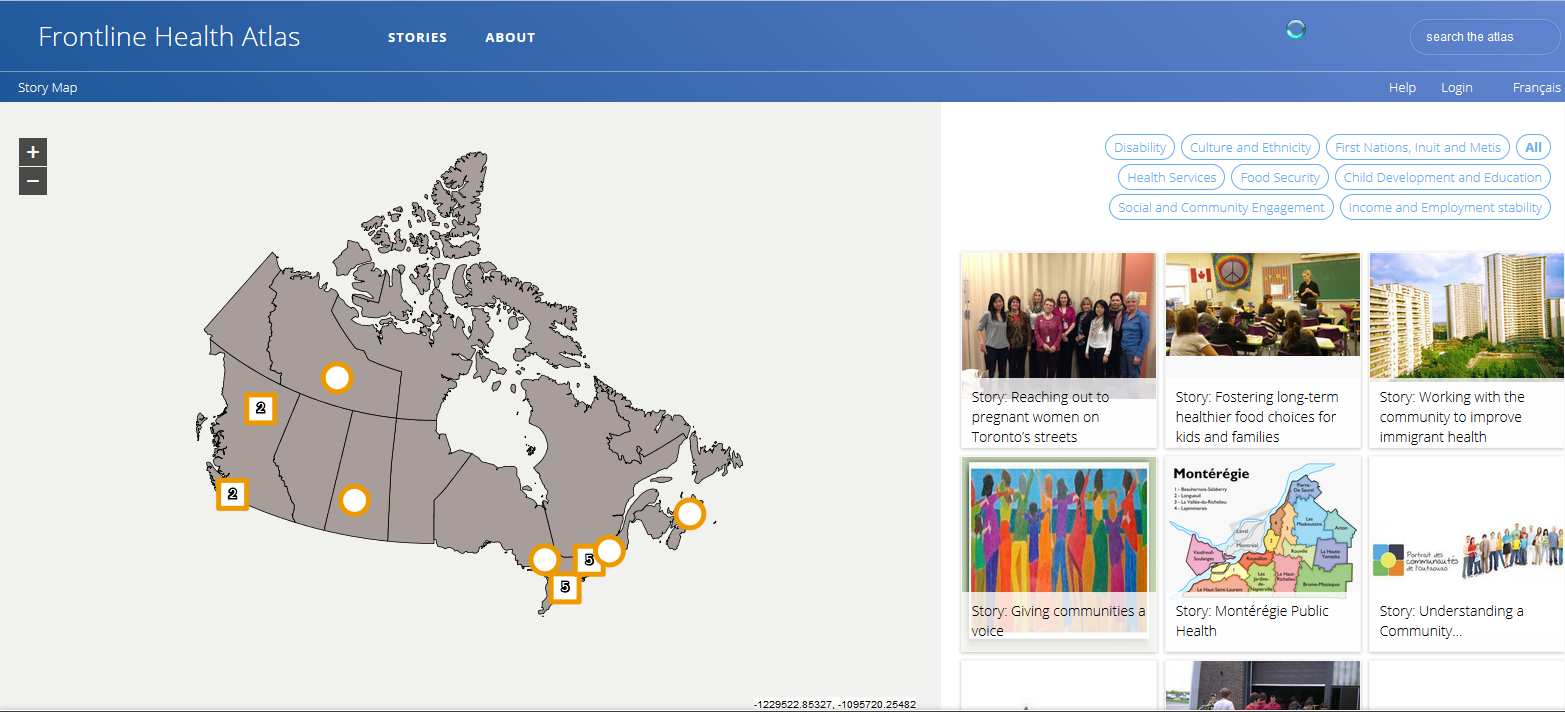 By Frank Welsh, Director of Policy, Canadian Public Health Association
By Frank Welsh, Director of Policy, Canadian Public Health Association
Your health and quality of life is determined by a wide range of factors. These social determinants of health (SDH) are broadly defined as “the conditions in which people are born, grow, live, work and age” and include education, income, housing, gender, physical environment, social environment, access to health services and healthy childhood development. In order to optimize the health and well-being of communities across Canada, public health authorities are tackling these unique challenges by developing innovative programs to address this complex intermingling of factors. In a country as large and diverse as Canada, it’s essential that we have a way of sharing our successes – and our failures – so that other can learn from our experiences and build on them to develop more effective interventions. The purpose of Frontline Health (FLH) is to share those stories with the public health community across Canada.
At its simplest, FLH is an online collection stories overlaid on a map of Canada about communities that have had success in addressing the SDH. The stories are told in the voice of those who develop and manage these programs, and they integrate text, podcasts, pictures and video to provide a human context and make them accessible to a general audience.

FLH is the result of three partners coming together to address a knowledge exchange need of the public health community. With initial funding from Astra Zeneca, the Canadian Public Health Association conceptualized and managed the Atlas’ development and preparation of the stories, while research and development for the site was provided by the Geomatics and Cartographic Research Centre (GCRC), Carleton University. Using their open-source mapping software, Nunaliit, coupled with the Couch open source database, GCRC designed an interactive Atlas that provides the functionality needed to capture the stories with an interface that highlights the human nature of the project. Preparation of broadcast quality podcasts was provided by Smarter Shift, an Ottawa-based content development and communications firm. Without the unique contribution of each of the three partners this project would not have succeeded.
Frontline Health, however, is much more than the technology; it is about the stories. There are currently 19 stories, each of which represents one community’s effort to respond to a local challenge that was rooted in a particular social determinant of health. The FLH stories describe how communities have responded to these needs for a particular at-risk population. They range from one about how a community in the Northwest Territories is improving food choices by its residents, to another concerning a program that reaches out to pregnant women living on Toronto’s streets.
The Atlas is clearly resonating with the public health community, as the number of “hits” recorded and the residence times of visitors are above average, given the type of site and target audience. In addition, informal comments are strongly supportive of the content, as well as the Atlas’ look and feel. There are however challenges, the greatest of which are identifying and developing the stories in a timely fashion, and maintaining a contemporary, user-friendly look and feel to the site.
The collaborative efforts of CPHA, GCRC and Smarter Shift have provided a unique Atlas that tells the stories of how some communities are addressing the needs of specific populations. The Frontline Health Atlas can be found at: http://www.cpha.ca/en/programs/social-determinants/frontlinehealth.aspx, then click on the map of Canada.